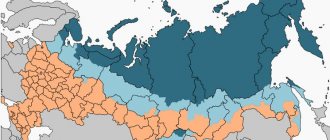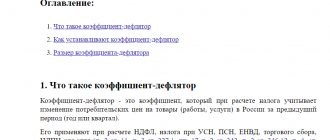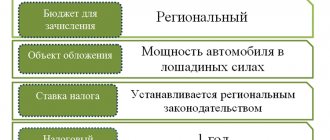When new rules apply
New calculation rules were approved by Federal Law No. 175-FZ dated 06/08/2020. These are valid for benefits that begin on or after June 19, 2020. The changes concern three types of benefits (Article 14 of the Federal Law of December 29, 2006 No. 255-FZ):
- for temporary disability;
- for pregnancy and childbirth;
- for child care up to 1.5 years.
In general, these payments are calculated based on the average salary for the previous two years, but there are two exceptions (clause 1.1 of Article 14 of the Federal Law of December 29, 2006 No. 255-FZ):
- There had been no official income for the previous two years.
- Average monthly earnings for the previous two years are below the minimum wage.
The new rule applies to all employees whose salary over the previous two years was more than 24 minimum wages, but less than 24 minimum wages, taking into account the regional coefficient.
The regional coefficient sits within the minimum wage
The situation is not simple, since in case of unlawful non-accrual of the district coefficient, the employer may be held administratively liable on the basis of Article 5.27 of the Code of Administrative Offenses of the Russian Federation “Violation of labor and labor protection legislation.”
In the case of “excessive” calculation and payment of the district coefficient, these amounts during a tax audit may be recognized as unlawfully included in the number of expenses that reduce taxable profit. — compensation payments (additional payments and allowances of a compensatory nature, including for work in conditions deviating from normal, work in special climatic conditions and in territories exposed to radioactive contamination, and other payments of a compensatory nature);
What has changed in the calculation of sick leave?
Previously, FSS specialists were of the opinion that when comparing average earnings with the minimum wage, regional coefficients do not need to be taken into account. They explained that the regional coefficient has already been taken into account in the actual average earnings of the billing period (letter from the Federal Social Insurance Fund of the Russian Federation dated December 17, 2018 No. 02-11-03/17-02-468OP).
The judges did not agree with this position of the FSS. They noted that the regional coefficient should be applied at the stage of comparing actual and minimum average daily earnings (determination of the Supreme Arbitration Court of the Russian Federation dated May 26, 2014 No. VAS-5881/14, determination of the Supreme Arbitration Court of the Russian Federation dated November 3, 2017 No. 304-KG17-15715). Therefore, it was possible to consider it this way, but only if one was prepared to defend one’s position in court.
Since June 19, the procedure for calculating benefits has not changed - the steps remain the same. But now the law has officially enshrined the position of the courts - when comparing the average salary of an employee with the minimum wage, it is necessary to take into account the regional coefficient established in regions and localities. This eliminates the paradox due to which a worker with a lower income received more sick leave over two years than a colleague with a higher income.
Minimum wage, minimum wage and “Ural” coefficient
(Resolution of the Constitutional Court of the Russian Federation dated December 7, 2017 No. 38-P)
According to Art. 129 Labor Code of the Russian Federation on wages
(
employee remuneration
)
are
remuneration for labor depending on the qualifications of the employee, complexity, quantity, quality and conditions of the work performed, as well as
compensation payments
(additional payments and allowances of a compensatory nature, including
for work in conditions deviating from normal, work in special climatic conditions
and in territories exposed to radioactive contamination, and other compensation payments) and incentive payments (additional payments and incentive allowances, bonuses and other incentive payments).
Part 1 art. 133 Labor Code of the Russian Federation
provides that
the minimum wage
is established simultaneously throughout the entire territory of the Russian Federation by federal law and cannot be lower than the subsistence level of the working population.
Part 3
The same article establishes the rule according to which the
monthly salary of an employee
who has worked the standard working hours during this period and fulfilled labor standards (labor duties)
cannot be lower than the minimum wage
.
In accordance with Art. 133.1 Labor Code of the Russian Federation
in a constituent entity of the Russian Federation, a regional agreement on the minimum wage may establish
the amount of the minimum wage in a constituent entity of the Russian Federation
.
The amount of the minimum wage in a constituent entity of the Russian Federation can be established
for employees working in the territory of the relevant constituent entity of the Russian Federation,
with the exception
of employees of organizations financed
from the federal budget
.
The minimum wage in a constituent entity of the Russian Federation is established
taking into account socio-economic conditions and the cost of living of the working population in the relevant constituent entity of the Russian Federation.
The minimum wage in a constituent entity of the Russian Federation cannot be lower than the minimum wage established by federal law
.
Monthly salary of an employee working in the territory of the corresponding constituent entity of the Russian Federation
and who is in an employment relationship
with an employer in respect of whom a regional agreement
on the minimum wage is in force or to which the said agreement is extended,
cannot be lower than the minimum wage in this constituent entity of the Russian Federation,
provided that the specified employee has fully worked out the working norm for this period time and labor standards are met (job duties).
Currently in force - to the extent that does not contradict the Labor Code of the Russian Federation - are the regulatory legal acts adopted before the entry into force of the Labor Code of the Russian Federation, which determined the procedure for applying the regional coefficient
(
coefficient
)
and percentage premium
.
At the same time, regulations establishing coefficients for work in high mountain areas, desert and waterless areas and percentage bonuses for workers in certain regions with special climatic conditions remain in effect.
In accordance with the specified regulatory legal acts, the district coefficient
(
coefficient
)
and the percentage bonus are calculated on the employee's actual earnings
.
Thus, the regional coefficient
(coefficient) and percentage bonus
must be calculated on earnings
determined in accordance with the established wage system.
In accordance with the requirements of Art. 7
(
Part 2
) and
37
(
Part 3
)
of the Constitution of the Russian Federation,
federal law establishes a guaranteed minimum wage.
At the same time, the Constitutional Court of the Russian Federation noted, as follows from the indicated provisions of the Constitution of the Russian Federation, remuneration for work is not lower than
The minimum wage established by federal law to everyone
.
Therefore, determining its value should
be based on the characteristics of labor inherent in any work activity,
without taking into account the special conditions for its implementation
.
The main purpose of the minimum wage is to ensure the monthly income of an employee who has worked the standard working hours at the level guaranteed by law.
In decisions of the Supreme Court of the Russian Federation
in specific cases it has been repeatedly stated that
when establishing a remuneration system
in organizations
located in the Far North, unfavorable factors
associated with working in these conditions, in accordance with
Art.
315, 316 and
317 of the Labor Code of the Russian Federation must be compensated by a special coefficient
and a wage premium.
This means that wages
employees of organizations located
in the regions of the Far North and equivalent areas should be determined in an amount
not less than the minimum wage,
after which a regional coefficient
and an allowance for work experience in these areas or localities should be added to it.
The Constitutional Court of the Russian Federation indicated that currently law enforcement practice is based on the fact that the employee’s right
who carries out labor activities in special climatic conditions,
increased wages cannot be considered violated in cases where the amount of his wages, taking into account the inclusion of the regional coefficient
and percentage bonus
, is not less than the minimum wage
.
However, the minimum wage must be provided to all workers
under an employment contract, that is,
it is a general guarantee
provided to employees
regardless of the location in which labor activity is carried out
.
The minimum wage is set simultaneously throughout the entire territory of the Russian Federation, that is, without taking into account the natural and climatic conditions of various regions of the country
.
Consequently, increased wages
in connection with work in special climatic conditions
should be carried out after determining the amount of wages
and fulfilling the constitutional requirement to ensure the minimum wage.
This means, according to the Constitutional Court of the Russian Federation, the regional coefficient
(coefficient) and percentage bonus accrued in connection with work in areas with special climatic conditions, including in the Far North and equivalent areas,
cannot be included in the minimum wage
.
Otherwise, the monthly wages of workers who have worked their full working hours in areas with special climatic conditions could not differ in size from the wages of persons working in regions with a favorable climate.
Development of a draft regional agreement on minimum wages
and the conclusion of the said agreement is carried out by a tripartite commission for regulating social and labor relations of the relevant constituent entity of the Russian Federation in the manner established by
Art.
47 Labor Code of the Russian Federation .
After the conclusion of the regional agreement
on the minimum wage, the head of the authorized executive body of a constituent entity of the Russian Federation invites employers operating on the territory of this constituent entity of the Russian Federation and
who did not participate in the conclusion of this agreement to join it
.
This proposal is subject to official publication along with the text of this agreement.
Supervisor
The authorized executive body of the constituent entity of the Russian Federation
is notified of the publication of the said proposal and agreement
by the federal executive body exercising the functions of developing state policy and legal regulation in the field of labor.
If employers
operating in the territory of the relevant constituent entity of the Russian Federation,
within 30 calendar days
from the date of official publication of the proposal to join the regional agreement on the minimum wage,
have not submitted to the authorized
executive body of the constituent entity of the Russian Federation
a reasoned written refusal to join
it, then
the specified agreement is considered extended to these employers from the date of official publication
of this proposal and is subject to mandatory execution by them.
Employee's monthly salary
, working in the territory of the corresponding subject of the Russian Federation and having an employment relationship with an employer in respect of whom
a regional agreement
on the minimum wage
is in force or to which the said agreement is extended, cannot be lower than the minimum wage in this subject of the Russian Federation
, provided that the specified employee During this period, the standard working hours have been fully worked out and labor standards (job duties) have been fulfilled (
Article 133.1 of the Labor Code of the Russian Federation
).
In accordance with the Agreement on the minimum wage in the Sverdlovsk region
dated August 30, 2017 No. 151 in the Sverdlovsk region, the minimum wage is established
from October 1, 2021 in the amount of 9,217 rubles
.
The Agreement applies
on the executive bodies of state power of the Sverdlovsk region, employers, including individual entrepreneurs, members of the Regional Association of Employers “Sverdlovsk Regional Union of Industrialists and Entrepreneurs”, and trade union organizations included in the Sverdlovsk Regional Union of Trade Union Organizations “Federation of Trade Unions of the Sverdlovsk Region”, as well as
on organizations who are not members of these associations, but have delegated to them the authority
to conclude this Agreement, as well as those who have acceded to the Agreement or
who have not submitted
to the Department of Labor and Employment of the Sverdlovsk Region
a reasoned written refusal to accede
to the Agreement within 30 calendar days from the date of its publication in " Regional newspaper."
In the Sverdlovsk region, employers who refused in writing to accede to
the Agreement
on the minimum wage in the Sverdlovsk region dated August 30, 2017 No. 151,
are required to pay wages
in the amount of the federal minimum wage, increased by the “Ural” coefficient -
8,970 rubles.
(RUB 7,800 × 1.15).
Clause 2 of the Agreement
on the minimum wage in the Sverdlovsk region dated August 30, 2017 No. 151, it is established that
the minimum wage includes
:
– tariff rate, salary (official salary);
– as well as compensation payments
(additional payments and allowances of a compensatory nature, including:
for work in conditions deviating from normal, work in special climatic conditions
and in areas exposed to radioactive contamination;
other compensation payments);
– incentive payments ( additional payments
and
incentive
allowances bonuses
and other incentive payments).
Therefore, the Agreement
on the minimum wage in the Sverdlovsk region dated August 30, 2017 No. 151 stipulates that the minimum wage
already includes regional surcharges for climatic conditions, including the “Ural” coefficient
.
It follows from the Agreement
that
there is no need to add the “Ural” coefficient
to the amount of the minimum wage
in the Sverdlovsk region .
Thus, if an employer in the Sverdlovsk region has acceded to the Agreement or has not acceded, but has not submitted a written refusal to accede to the Agreement, then such employer is obliged to pay wages to employees
of no less than 9,217 rubles
per month.
Within the meaning of Art. 133.1 Labor Code of the Russian Federation
The minimum wage in a constituent entity of the Russian Federation is established in order to increase the level of wages if the economy of the region is developing steadily and creates conditions for the possibility of taking into account the cost of living of the working population in the constituent entity of the Russian Federation.
At the same time, the Constitutional Court of the Russian Federation noted, Art.
133.1 of the Labor Code of the Russian Federation does not provide for the powers of social partners
concluding this
agreement
, in addition to the size of the minimum wage,
to independently determine the rules for including any payments in it, in particular regional coefficients
(coefficients) and percentage bonuses.
Therefore, when concluding a regional agreement
on the minimum wage in a constituent entity of the Russian Federation, the tripartite commission for regulating social and labor relations of the corresponding constituent entity of the Russian Federation
must be guided by the general rules for determining the content of the agreement
established
by Art.
45 and
46 of the Labor Code of the Russian Federation
.
In particular, according to Part 1 of Art.
45 of the Labor Code of the Russian Federation,
authorized representatives of workers and employers at all levels of social partnership, including regional ones, must
act within the limits of their competence
.
The Constitutional Court of the Russian Federation clarified that, unlike federal legislation, the regional agreement on the minimum wage has a limited scope
.
It does not apply to employees of federally funded organizations and, due to the principles of social partnership, may not cover all employers
of the relevant constituent entity of the Russian Federation (and, accordingly, not all employees), since the existing procedure for joining such an agreement for employers operating in the territory of this constituent entity of the Russian Federation and not participating in its conclusion allows them, within 30 calendar days from the date of official publication of the proposal to join to the agreement, submit to the authorized executive body of the constituent entity of the Russian Federation a reasoned written refusal to join it.
In addition, the duration of the agreement cannot exceed three years
, and its content and structure are determined by agreement between representatives of the parties, who are free to choose the range of issues for discussion and inclusion in the agreement.
It follows from this that the minimum wage established in a constituent entity of the Russian Federation can be abolished or its size can be changed
due to changing economic conditions.
Thus, the minimum wage in a constituent entity of the Russian Federation
represents
an additional guarantee
, which
does not replace the guarantees
provided for by federal law, including increased wages in connection with work in areas with special climatic conditions.
Securing the possibility of establishing a minimum wage in a constituent entity of the Russian Federation within the framework of trilateral cooperation, the federal legislator proceeded from the fact that in the mechanism of legal regulation of wages such an additional guarantee would, in appropriate cases, be applied instead of the minimum wage
established by federal law,
without replacing or canceling other guarantees
provided for by the Labor Code of the Russian Federation.
The resolution of the Constitutional Court of the Russian Federation came into force on December 8, 2017
.
Therefore, in the regional agreement
a change must be made
to the minimum wage in the Sverdlovsk region .
Example
At Volna LLC, two employees are going on sick leave from 01/21/2020 to 01/30/2020. Everyone has more than 8 years of insurance experience, that is, they receive 100% sick pay. The region has a regional coefficient of 50%.
Workers differ only in the income they received in the two previous years (2018–2019):
- the income of the first employee is 291,113 rubles (less than 24 minimum wages);
- the income of the second employee is 291,121 rubles (more than 24 minimum wages).
Let's calculate the amount of payment for ten days of sick leave that each of them will receive.
Calculation according to the old rules
| First employee | Second worker | |
| We calculate the average daily earnings based on the employee’s income | 291,113 rubles / 730 days = 398.78 rubles | 291,121 rubles / 730 days = 398.80 rubles |
| We calculate the minimum amount of average daily earnings based on the minimum wage | 24 months × 12,130 rubles / 730 days = 398.79 rubles | |
| Compare the actual average earnings with the minimum | 398,78 < 398,79 Minimum earnings are higher | 398,80 > 398,79 Actual earnings are higher |
| Calculating the total benefit amount | 398.79 rubles × 10 days × 1.5 (RK) = 5,981.85 rubles | 398.80 rubles × 10 days = 3,988 rubles |
Result : Volna LLC has two employees with income for two years, which differs by only 8 rubles, and the same insurance length. In this case, the first employee with a lower income will be paid sick leave in an amount that is 1.5 times more than the amount paid to the second employee. If I were the second employee, I would like to go to the accountant and ask him not to take into account 8 rubles for the past two years.
The difference is due to the fact that according to the old FSS methodology, it was possible to apply the regional coefficient only in the case when the average earnings calculated from the minimum wage turned out to be higher than the actual one. That is, the benefit is calculated based on the minimum average daily earnings. If actual earnings exceeded the minimum, the regional coefficient was not applied. This methodological problem was in effect from January 1, 2011 to June 19, 2021 (before the Federal Law of June 8, 2020 No. 175-FZ came into force).
Calculation according to the new rules - from June 19, 2021
With the entry into force of the new rules, the regional coefficient will need to be applied at the stage of comparing the actual average daily earnings with the minimum, which will eliminate the problem.
Let's see what the calculation will look like in July 2021. July was taken deliberately, since there are 31 calendar days. To exclude the influence of Federal Law No. 104-FZ dated April 1, 2020 on the calculation results.
| First employee | Second worker | |
| We calculate the average daily earnings based on the employee’s income | 291,113 rubles / 730 days = 398.78 rubles | 291,121 rubles / 730 days = 398.80 rubles |
| We calculate the minimum amount of average daily earnings based on the minimum wage | 24 months × 12,130 rubles × 1.5 (RK) / 730 days = 598.19 rubles | |
| Compare the actual average earnings with the minimum | 398,78 < 598,19 Minimum earnings are higher | 398,80 < 598,19 Minimum earnings are higher |
| Calculating the total benefit amount | 598.19 rubles × 10 days = 5,981.90 rubles | 598.19 rubles × 10 days = 5,981.90 rubles |
Result : In this case, justice prevailed - both employees received the same amount of benefits. Note that Federal Law No. 104-FZ dated April 1, 2020 for sick leave in the period from April 1 to December 31, 2021 partially compensated for the problem that was caused by the rules of the Social Insurance Fund. But the issue was finally settled only by Federal Law No. 175-FZ dated 06/08/2020.
Fill out electronic sick notes quickly and without errors and create registers in Externa
Minimum wage and regional coefficient in 2021
According to Law No. 82-FZ, the minimum wage is equal to the subsistence level for the 2nd quarter of the previous year. The cost of living for the 2nd quarter of 2019 is already known (approved by order of the Ministry of Labor dated 08/09/2019 No. 561n) - 12,130 rubles, this gives reason to assume that the federal minimum wage in 2021 will be set at the same level. Regions can approve their own “minimum wage”, but not lower than the federal value. There are no changes yet in the rules regarding the application of the regional coefficient - additional payment for work in an unfavorable climate should be calculated above the regional minimum wage level.
Northern coefficient, regional bonuses and increasing the minimum wage
2. A fine for a repeated violation for a manager from 10,000 to 20,000 rubles or disqualification for a period of one to three years, a fine for a repeated violation for an individual entrepreneur from 10,000 to 20,000 rubles, for an organization - from 50,000 to 70,000 rubles (Part 4 of Article 5.27 of the Code of Administrative Offenses of the Russian Federation).
Therefore, based on this, we can conclude that when checking the compliance of the salary (wages) of an employee with the minimum wage, it is necessary to take into account any additional payments and allowances to the salary. That is, the total amount of remuneration is taken (including remuneration for labor, all additional payments and allowances, incentive payments without exception), and this amount is compared with the minimum wage.
Minimum wage 2021 minimum wage from May 1, 2021
The work of part-time workers is also paid in proportion to the time worked, depending on the terms of the employment contract (Article 285 of the Labor Code). The employer is not obliged to make additional payments up to the minimum wage to persons working part-time if the amount of their remuneration specified in the employment contract for part-time work does not exceed the minimum wage.
compensation payments (additional payments and allowances of a compensatory nature, including for work in conditions deviating from normal, work in special climatic conditions and in territories exposed to radioactive contamination, and other payments of a compensatory nature);







